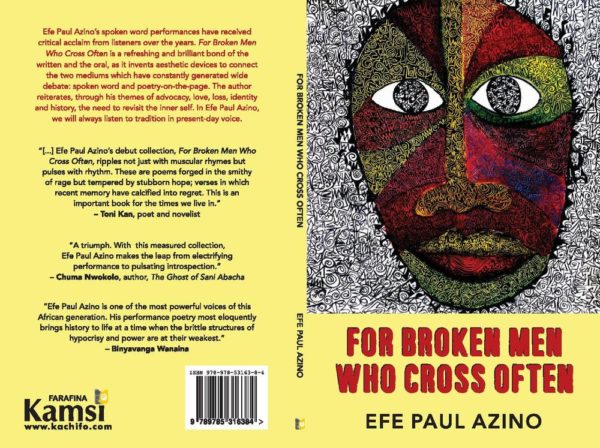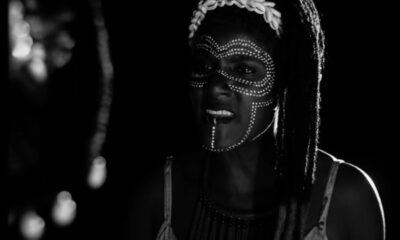Features
Oris Aigbokhaevbolo: Short Stories, Poetry, Music & Movies! Check Out the Best 4 of 2015 in Arts & Culture
 We’ll have to bemoan the state of Nigerian culture criticism—a thankless, payless activity—that makes it impossible for any one person to follow and appraise culture products to a significant extent. It is a large country, and without financial and institutional support criticism, only the devout can wade in, buoyed by his own conviction. Even so, the devout can’t see everything in the cinemas or listen to every song on the radio.
We’ll have to bemoan the state of Nigerian culture criticism—a thankless, payless activity—that makes it impossible for any one person to follow and appraise culture products to a significant extent. It is a large country, and without financial and institutional support criticism, only the devout can wade in, buoyed by his own conviction. Even so, the devout can’t see everything in the cinemas or listen to every song on the radio.
That said, here’s a list of four highlights from the year just past.
4. For Broken Men who Cross Often
Poetry has taken the backseat in the Nigerian culture scene. No one really cares about poets. To read poetry is too solitary an activity and not quite as gratifying as reading novels. These are some of the advertised problems of the form that have made it rather easy for performance poets to become the modern demigods of the genre. The question is this: Are all of those words spoken poetry?
The jury is still out on that one. But with the book of poetry For Broken Men who Cross Often, Efe Paul Azino, one of the country’s leading performance poets, makes a case for the field. For readers who have had the chance to hear him recite onstage, this sometimes melancholy collection of poems about politics, aspiration, and morality can be read in his voice—a deep, clear thing of beauty. For newcomers, the words themselves would do. Fortunately, the book comes with a recording of the poems as read by the author.
Subsequently, they can catch the man at some poetry event somewhere in Lagos. The city holds a few most months.
3. Caterer, Caterer
In a year of three novels — Black Ass, (Igoni Barrett) Crimson Blossoms (Abubakar Adam Ibrahim) and Born on a Tuesday (Elnathan John)— from three writers born, bred and raised in Nigeria, it seems both strange and apt that the year’s best piece of written narrative was a short story penned in Nigerian English. Pemi Aguda’s Caterer, Caterer follows a woman headed out to replace a colleague as caterer for a client. Aguda carries us through the thoughts of this woman who is immediately recognisable as a typical (but not stereotypical) Nigerian.
The story has a surprise ending that is quite a shock. That surprise is the weakest part of Caterer, Caterer. Everything else is smooth and written in colloquial Nigerian poetry. The story is a gift to everyone who has lived in this country of ours. Caterer, Caterer won the Writivism Prize. It deserves even more.
2. Local Rapper
In 2015, three rappers recorded a song where they championed their unlikely rise. “The streets have taken over,” they sang, and punchlines have become superfluous. That last bit is contestable.
What isn’t debatable is the song’s importance. It marked the moment the word ‘local’ became something to be proud off—a feat in Nigeria. In recording the song, Reminisce, Olamide and Phyno, the local rappers of the title, reclaimed the word.
The song won Best Collaboration at the 2015 Headies. Unlike a couple other controversial wins, there was never any doubt about this one.
1. O-Town
2015 was not a great year for Nigerian film. Almost all of the big pictures were disappointments; our films still receive unfortunate time slots at the cinemas; and, commercially, nothing did quite as well 2014’s 30 Days in Atlanta. It was thus not surprising that the year’s best film did not receive a run at the regular cinema.
For all of its flaws, and there are a quite a number, the African Film Festival (AFRIFF) deserves praise. The festival serves the country with a generous selection of Nigerian films. And it doesn’t happen always that something special comes through, but it does on occasion. In 2015, that something special was O-Town, a film by CJ Obasi.
Extravagant, flawed, narcissistic, and brilliant, O-Town was Nigeria’s most ambitious film of 2015. It was the most negligent of its audience, focusing instead on the singular vision of its director. And when it opened at AFRIFF debates on its merits were quite fierce, with the Lagos Film Review publishing three distinct reviews on the film—the highest number of critical consideration received by any film shown at the festival.
This film about Peace, a small town hustler with big dreams, will divide its audience. And we should consider that a tribute to its value.
According to reports, O-Town will receive a run at the cinemas sometime in 2016. Which is a coup for the filmmaker: He has made a very personal film and would get the chance to show it to a wide audience. You should see it—if only to say you were there at the start of an important filmmaking career.

























